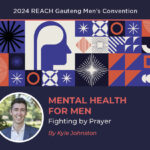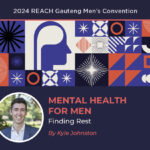One way to define biblical counselling is to say that it connects the riches of God’s word to the realities of life. Biblical counselling ministry is about connecting the dots between Scripture and life.
But as biblical counselling develops in our African context, there is a concern I repeatedly hear: that biblical counselling is too simplistic. The concern is that an approach emphasising scripture’s sufficiency will produce reductionistic care. This concern is particularly relevant in an African context where we don’t only grapple with the complexities of mental health issues, trauma, racism, and xenophobia, but where we also engage with traditional African religions and cultures.
A concern I repeatedly hear is that biblical counselling is too simplistic.
In the face of all this, the concern is that biblical counselling lacks sophistication and nuance. So how we can answer this concern?
Biblical Counselling Needs Complex Theocentrism
The brief answer is that biblical counselling should always embrace complex theocentrism. A complex theocentric approach, by definition, seeks rich, deep and wise answers, while trying to avoid being simplistic and reductionistic. Let me explain what I mean.
Complex theocentrism is a term coined by the Christian scholar, Eric Johnson. He uses it to refer to an approach to soul care that recognises the central importance of God’s relationship to people, but also considers other aspects of the person. So it is God-centered (or theocentric) and appreciates human complexity (recognising people as both physically-embodied and culturally-embedded). Johnson argues that “all the created aspects of human life are recognised as important because they are made by God. Therefore, for God’s glory, every aspect must be ‘given its due,’ corresponding to its particular significance in relation to God.”
Biblical counselling must seek rich, deep, and wise answers, while trying to avoid being simplistic.
There is much wisdom in this complex theocentric approach. Indeed, as a biblical counsellor, I have often used this term to describe how I understand and seek to help folks with various troubles.
What does this look like in practice?
A Contemporary African Example
Suppose a young married couple requests pastoral care for help with communication in their relationship. As the conversation unfolds, it becomes clear that the husband struggles with anxiety and the wife struggles with anger. Furthermore, as you continue to ask questions you discover they are from different cultures, with very different expectations from their respective families. They are currently trying for a child. But after two years they haven’t fallen pregnant. Their married life has been challenging.
Biblical counselling seeks to conceptualise people and their problems theologically.
How should this young couple be cared for? How should this situation be approached?
A simplistic approach would be to only quote Bible verses at them: “Husbands, love your wives” (Ephesians 5:25). And then to the wife: “Wives, submit yourselves to your own husbands as you do to the Lord.” (Ephesians 5:22). But citing Bible verses is not the methodological distinctive of biblical counselling. Biblical counselling is distinctive because we seek to conceptualise people and their problems theologically.
This means that we understand people are God’s image-bearers, are sinners and sufferers, and live in a broken world under God’s judgement. Biblical counsellors want to be God-centred, so citing Bible verses is certainly something we do. But more than that, we seek to understand people biblically. And we strive to move towards them in wisdom and love.
Applying Complex Theocentrism
So how does a complex theocentric approach inform pastoral care for this couple? Let me suggest a few things that should guide a biblical counsellor as they seek to understand the various aspects of their counselee’s life:
- Complex theocentrism means taking the time to listen. Understand their story. How did they end up married? What has their relationship looked like over time? What role has God played in their relationship?
- Complex theocentrism means taking the body into account. What physical strengths or weaknesses do they have? How do these physiological aspects influence their respective struggles with anger and anxiety?
- Complex theocentrism means taking their social context into account. Can they tell us more about their different families? How have they been influenced—for good or bad—by their respective upbringings? How do they engage with their culture? What else have they experienced that has affected how they currently communicate?
- Complex theocentrism means exploring their hearts and their everyday motivational beliefs and desires. What is it that they value and trust? What do they desire and what are their goals in life? Ultimately, what do they really want?
- Finally, complex theocentrism will involve using scripture and turning to God. While that may involve direct quotations, we want our use of scripture to be faithful, relevant, and creative. This could mean using scripture differently depending on the counselling scenario.
Is Complex Theocentrism a Biblical Concept?
The Bible provides us with the lens for this holistic understanding of people and their situations. In other words, we see complex theocentrism in the Bible. None of us lives in a vacuum. We are physically embodied and socially or culturally embedded. We are spiritual and psychological, emotional and volitional. This approach doesn’t make biblical counselling ministry less God-centred. In fact, as Johnson argues, it seeks to honour God by recognising how God has made the person. As he writes in an article where he discusses complex theocentrism: “The Bible provides our spectacles and sets the soul-care agenda.”
Complex theocentrism seeks to honour God by recognising how God has made the person.
This means that biblical counsellors should have an appreciation for complexity and nuance. So, as Johnson puts it, biblical counsellors “will pay attention to past events in the stories of those they see and the ongoing psychological effects of such events (on thoughts, emotions, dispositions, and action patterns).” This is particularly important in contexts of historical trauma, economic inequality, and ongoing violence.
It also means that biblical counsellors “recognise the complexity of the relationship between the body and soul (Genesis 2:7). Because of this, we seek to remain sensitive to physical factors and organic issues that affect people’s lives…we seek to apply God’s word to people’s lives amid bodily strengths and weaknesses. We encourage a thorough assessment and sound treatment for any suspected physical problems.” This is particularly important in under-resourced contexts where health problems significantly impact people’s lives. Because we are physically embodied and socially embedded, wise pastoral care must always recognise this.
Bringing the Riches of God’s Truth to Real People
Biblical counselling seeks to connect the riches of God’s word to the realities of life.
As a biblical counsellor, my commitment to complex theocentrism reminds me that I must do two things well. Firstly, I must take God’s word seriously because it reveals who people are and how the grace of Christ can renew their hearts. The Bible gives us the lens through which we understand people. Secondly, I must seek to understand those made in his image in the context of their lives. The Bible teaches us to be wise in caring for others.
Biblical counselling is well-suited to addressing pastoral challenges in the African church because it embraces a complex theocentric approach in seeking to connect the riches of God’s word to the realities of life.














